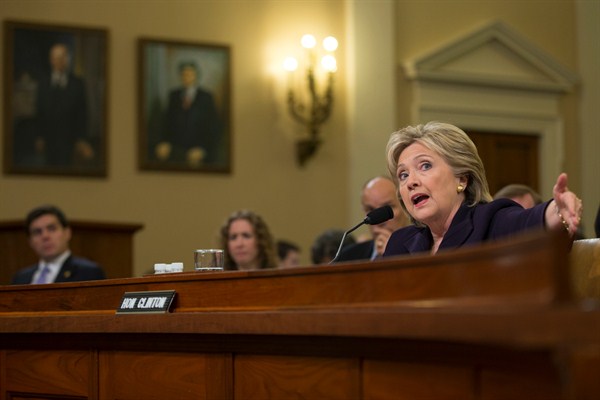Several weeks ago, Hillary Clinton spent 11 hours testifying before a congressional committee about the deaths of four Americans, including the then-U.S. ambassador, Chris Stevens, in Benghazi, Libya, in September 2012. For anyone watching this spectacle, little new was gleaned, except for the fact that Clinton is a remarkably disciplined politician—and that whatever threat the GOP’s Benghazi obsession might have posed to her presidential prospects in 2016 is effectively over.
What would have been of far greater interest, to both policy analysts and voters, is a look back on the U.S. decision to intervene in Libya, which Clinton strongly supported. As Libya has descended into anarchy, a prevailing conventional wisdom has emerged that the U.S. made a massive mistake in getting involved there, and that Clinton should face greater scrutiny and criticism for the mess that country has become.
This view was bolstered by comments over the summer from President Barack Obama that the intervention in Libya, particularly the lack of focus on postwar political rebuilding after Muammar Gadhafi was toppled from power, is one of his greatest regrets.

